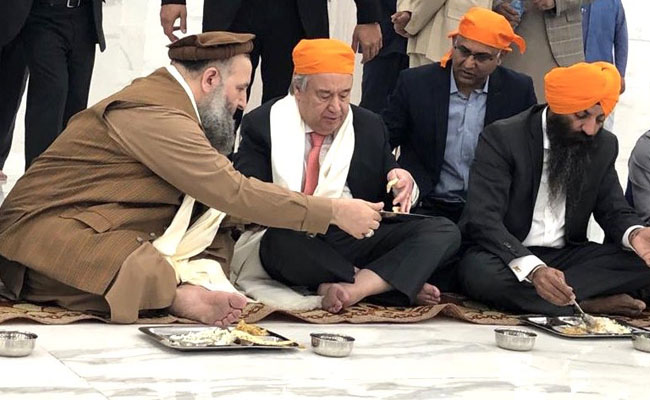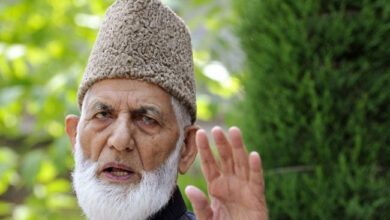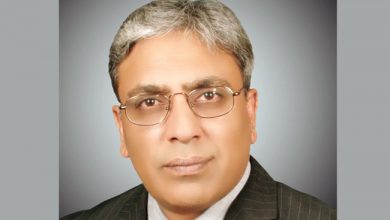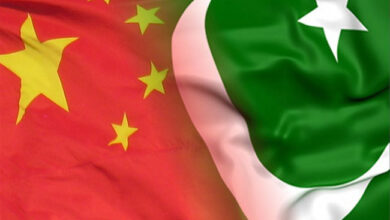Pakistan-India crossing is a ‘Corridor of Hope’, UN chief says, wraps up visit with call for interfaith dialogue
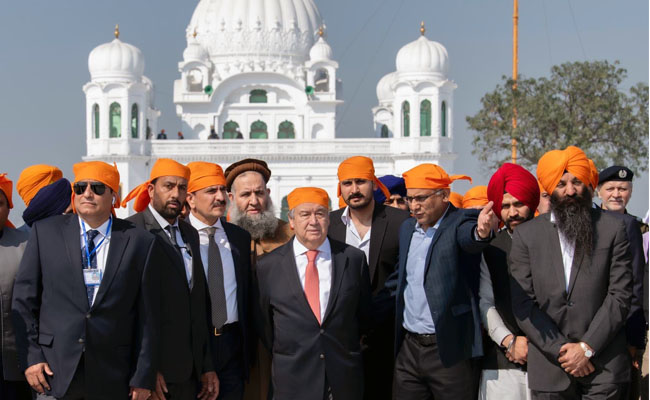
Pakistan: UN Secretary-General António Guterres on Tuesday said he had been moved by the show of religious unity he had witnessed in Pakistan after paying visits to a mosque, a Sikh temple and Kartarpur Corridor, the visa-free crossing which alls Sikhs to travel between nearby holy sites on each side of the India-Pakistan border.
“This is a very emotional moment. It is wonderful to see interfaith dialogue” said the Secretary-General, on the last leg of his three-day visit to Pakistan, where, since Sunday, he has pressed for climate action, and praised Pakistan’s compassion for hosting Afghan refugees, as well as the South Asian country’s major contributions to UN peacekeeping.
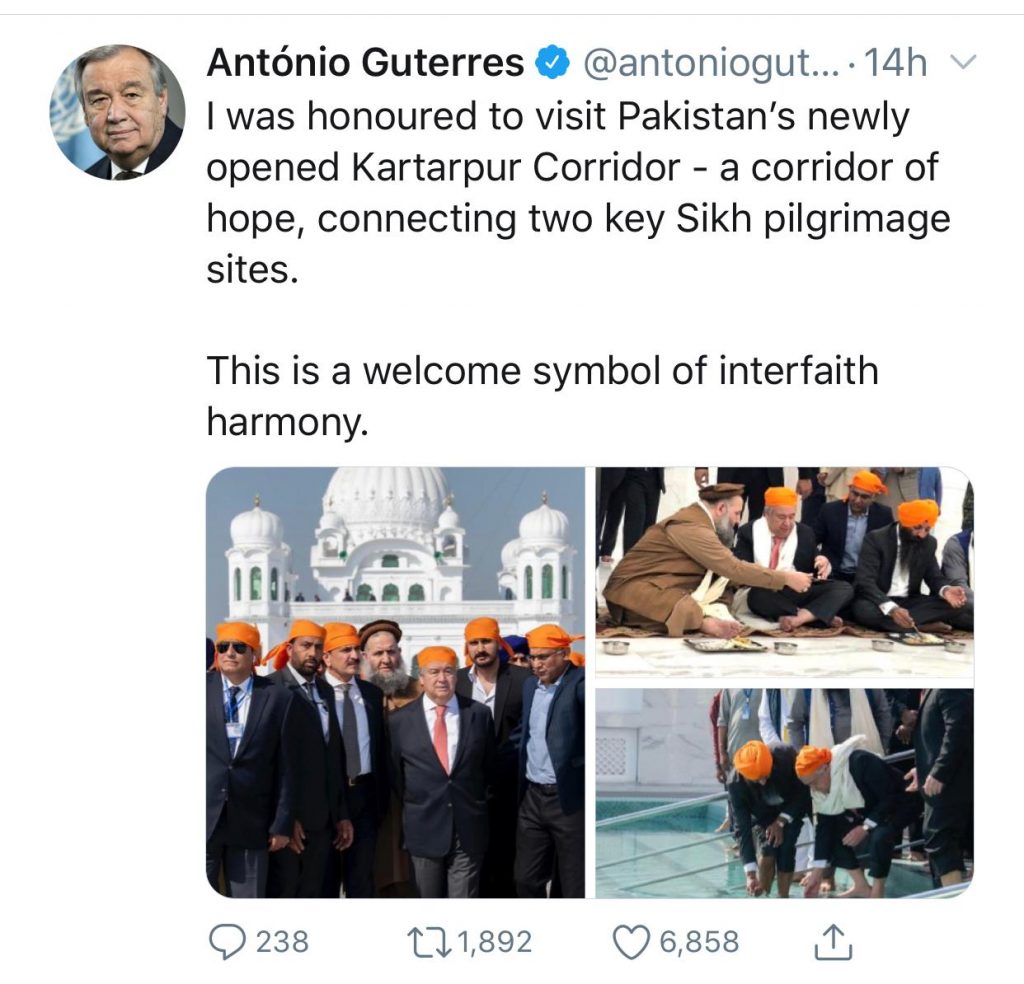
Speaking to the media the town of Katarpur his stop at the Corridor, the UN chief said: “It is wonderful to see in the same shrine today Sikhs, Muslims, Christians, maybe Hindus — all worshipping in harmony and in peace”.
Kartarpur is a town located in the province of Punjab (Pakistan) on the right bank of Ravi River. It is said to have been founded by the first guru of Sikhism, Guru Nanak in 1504 AD, where he established the first commune. The name means “place of God”.
To facilitate visa-free access to Indian Sikh pilgrims, Kartarpur Corridor was established in September 2018.
This so-called “Corridor of Peace” was inaugurated on 9 November 2019 on the eve of the 550th birth anniversary of Guru Nanak. The Corridor links Gurdwara Kartarpur Saheb with Gurdwra Dera Baba Nanak, across the border in India.
Echoing this sentiment of religious unity and tolerance, Mr. Guterres called the Kartarpur Corridor a “corridor of hope.” He also visited a gurdwara, or Sikh Temple, and the Badshahi Mosque in Lahore, he added: “When we see so many parts of the world fighting in the name of religion, it’s necessary to say that religions unite us for peace and the best symbol is this shrine”.
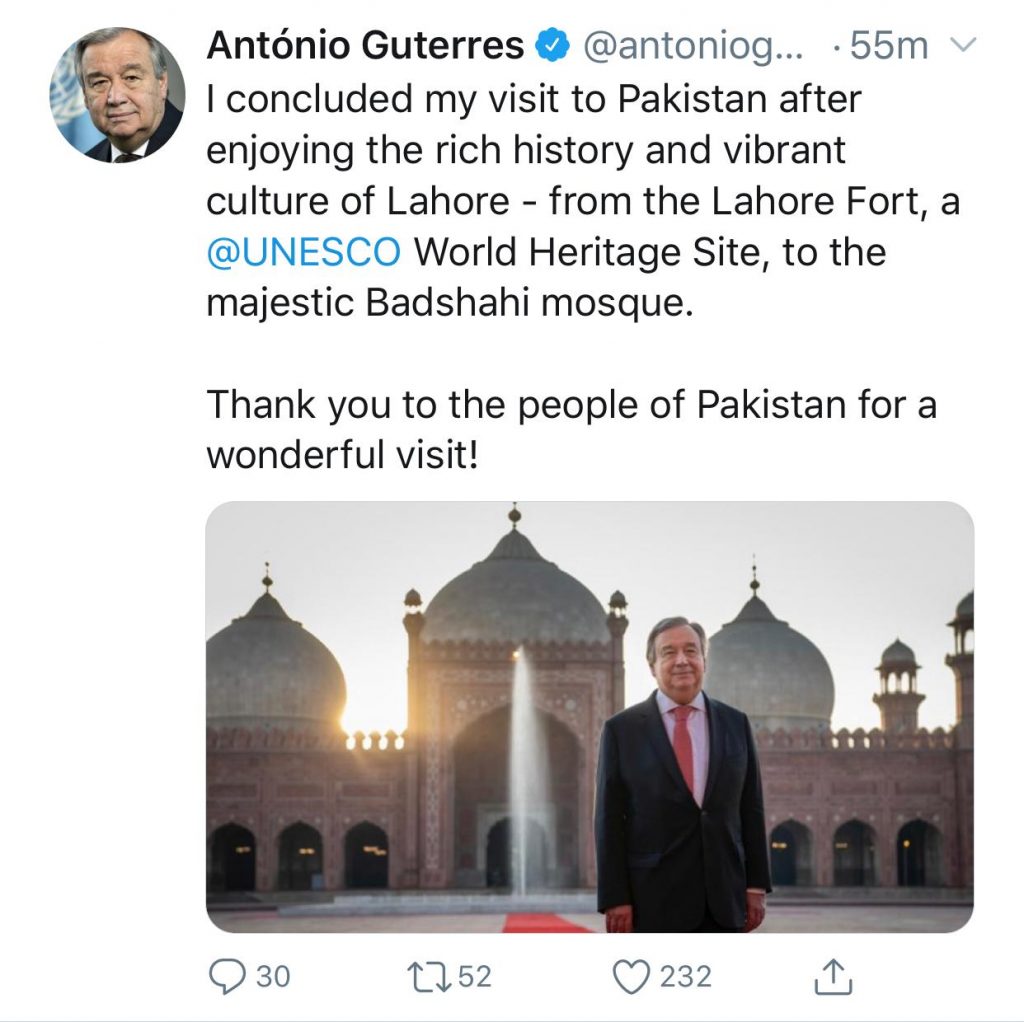
‘Diversity is a blessing not a threat’
The Secretary General has long advocated the importance of interreligious dialogue and interfaith harmony achieve peaceful societies.
“This is the best symbol that we can give for a world in peace and for a world in which there is mutual respect and there is the acceptance of what is different” Mr. Guterres told reporters today, stressing that “diversity is a blessing, a richness, not a threat”.
The Secretary General took the opportunity to pay tribute to the contribution of the Sikh community the world over: “I’m a Christian, but I feel very much at home when I am in a Sikh shrine and where I can pray to God here together with the Sikh community.”
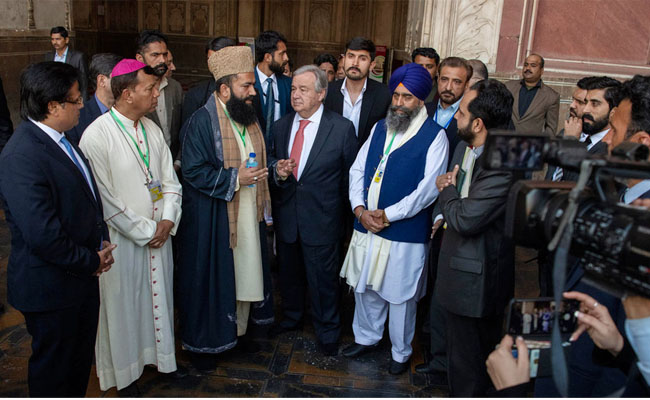
UN committed in helping Pakistan to eradicate Polio
Earlier in the day, the Secretary-General visited kindergarten in Lahore where he participated in the first nationwide polio campaign of the year, highlighting the importance of eradicating polio from the country.
At the school, he met Dr. Yasmin Raashiv, Minister of Health for the Punjab Province, along with several health workers. While there, the UN chief appealed to all leaders, including religious and community leaders, to fully support the Government of Pakistan, and other governments around the world, in making sure that polio can one day be fully eradicated.
He also administrated polio drops to three students.
Pakistan, with the help of international agencies and donors, has made strides in the eradication of polio. However, 110 reported cases since January 2019 have caused concerns.
Mr. Guterres later tweeted: “Important gains have been made, but we need a concerted push to eradicate this awful disease.”
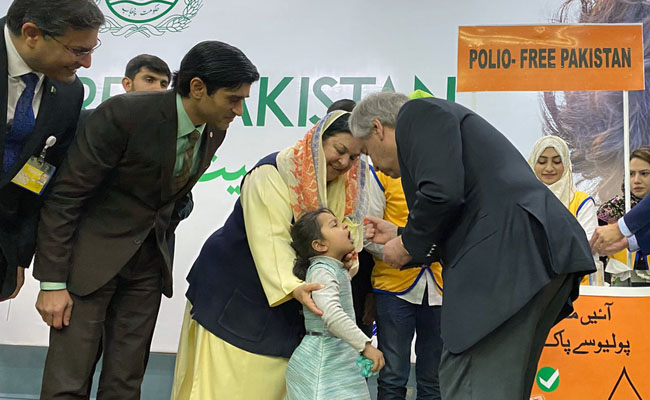
UN 75 Dialogue in Lahore
Among his other activities today was a lively discussion with the students at the Lahore University of Management Sciences (LUMS).
There, he highlighted the importance of the UN 75 dialogues that will be taking place over teh coming year, noting that for the Organization’s seventy-fifth anniversary, he wanted to reach out and hear from youth.
From January 2020, the UN75 campaign will initiate the dialogues in all settings – from classrooms to boardrooms, parliaments to village halls. The aim is to reach as many people as possible: to listen to their hopes and fears; and learn from their ideas and experiences. Anyone can join the global conversation – physically or online, individually or as a group, in every region of the world.
More than 60% of Pakistan’s population is under 30 years of age.
My message to Pakistan’s youth during our #UN75 dialogue:
Stay engaged.
Keep thinking big.
Keep up the pressure to build a better world.https://t.co/157YuPwoD0 pic.twitter.com/73pCJsbeBj— António Guterres (@antonioguterres) February 18, 2020
Mr. Guterres stressed that over the next year, the UN wants to make the voices of young people “count in the ways decisions are made , in which strategies are established, policies are defined and actions are implemented.”
He also stated that the aim is not merely a dialogue during the Organization’s anniversary year, but “to establish within the UN mechanisms of institutional dialogue and institutional participation allowing the youth to have an influence in the way the UN shapes its interventions, decisions and strategies”.
“And why is it so important that young people effectively participate in the way we shape decisions today? The main reason for me is because my generation has failed in many aspects, but they failed essentially, in three basic questions that will determine the future,” said Mr. Guterres, citing failures on climate change, on making globalization work for all, and in making sure that new technologies are a force for good.
Finally, he said: “I believe that the youth must have a fundamental voice, but not only a fundamental voice, a fundamental role in the shaping of our common future. And I want to make the UN75 anniversary the moment in which I will try to talk as little as possible and to listen as much as possible.”
The Secretary-General wrapped up his time at the university by listening to the gathered students and exchanging views with them on issues such as human rights and climate change, and also about the important role of the UN.
